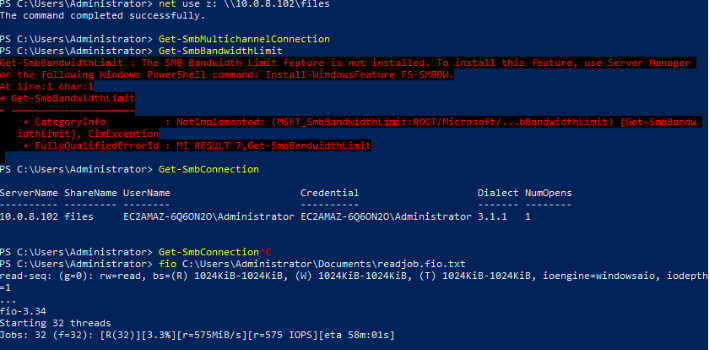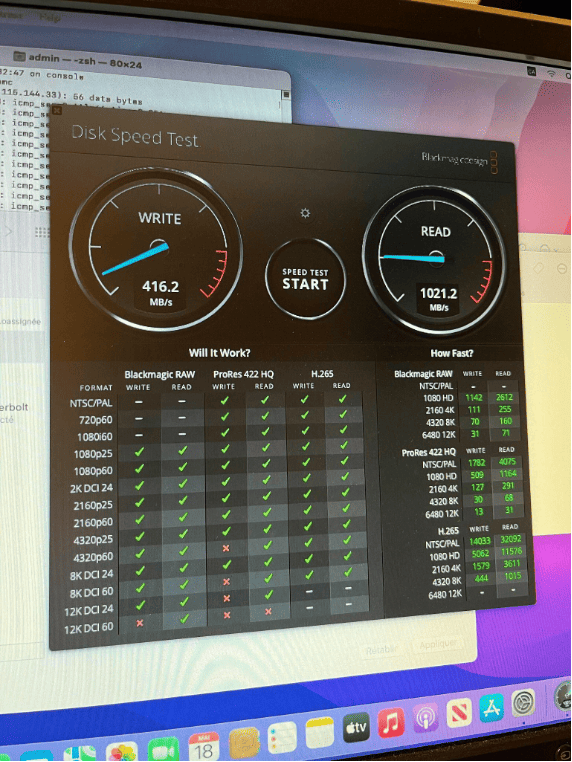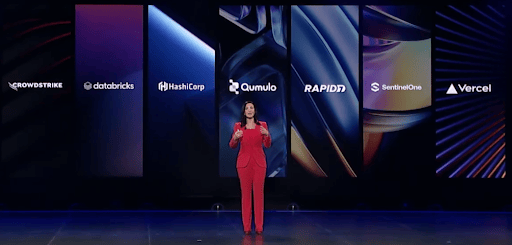Qumulo Core 6.1.0 adds support for SMB-Multichannel, and it screams with up to 300% more throughput in SMB-based workloads. Workloads previously impossible on Qumulo are now possible thanks to SMB-multichannel. M&E customers can leverage Qumulo with higher bit rate media formats. Hospitals and healthcare providers can rest assured that there will be enough performance to keep up with the imaging demands of their clinicians. Even simple data movement tasks like robocopy can observe performance increases.
What is SMB Multichannel?
SMB (Server Message Block) is a network file sharing protocol commonly used in Windows and macOS environments. In earlier versions of SMB, a single network connection was established between a client and a server, limiting the available bandwidth to that single connection. However, with the introduction of SMB Multichannel, multiple connections can be established simultaneously, enabling parallel transmission of data across these connections.
SMB Multichannel works by leveraging multiple network interfaces or network paths between the client and the server. Each network interface represents a separate lane for data transmission. The SMB protocol then distributes the data across these channels, taking advantage of the parallelism to enhance throughput.
By utilizing multiple network connections, SMB Multichannel provides a way to increase the available bandwidth and improve data transmission performance. This approach is analogous to adding more lanes to a road, allowing for more vehicles (data) to be transmitted concurrently, thus alleviating bandwidth limitations.
This unlocks workloads that can benefit from the added throughput of multichannel support, such as:
- Video Editorial at higher bitrate formats from MacOS clients, and in the cloud on virtual desktops, without dropped frames or stuttering
- Higher performance for healthcare use cases like Picture Archiving and Communication Systems (PACS) and Vendor-Neutral Archives (VNA’s). These applications need to serve hundreds or thousands of viewing stations in a hospital system during peak hours without slowing down patient care
- File sharing: enhance the performance of file sharing operations – copying, moving, and accessing files across the network. Multichannel support can deliver significant improvement in customer experience when using Qumulo for home directories
It’s important to note that SMB Multichannel requires support from both the client and the server with SMB version 3. If both endpoints are SMB Multichannel-capable, they will negotiate and establish multiple connections to facilitate parallel data transmission. However, if one of the endpoints does not support SMB Multichannel, the communication falls back to a single connection, limiting the bandwidth to that single channel. Prior to 6.1.0, Qumulo did not advertise this capability.
The challenge of SMB Multi-channel implementation
Qumulo does not leverage an open source or third party implementation of the SMB server protocol. Due to the distributed nature of our storage architecture, all data-access protocols that interact with our shared identity and permissions system must be re-implemented by our engineering team directly into the core file system daemon to deliver performance.
Our team worked tirelessly for months to resolve these challenges and ensure the reliable operation. And now, results have begun trickling in and the engineering team has become pleasantly surprised.
One of the challenges of implementing SMB multi-channel in a highly parallelized environment is dealing with handle leasing, which enables clients to “check-out” files or folders and perform IO on them without having to round-trip back to the storage server. When adding multiple parallel connections to the server in each SMB session, it is possible to introduce bugs by not correctly synchronizing session state.
Performance Increases

We’ve found that by default, Windows will open four concurrent connections if SMB multi-channel is enabled. Internal testing after enabling SMB multi-channel found that we were reaching throughput speeds of ~2.3GB/s – almost exactly 4x a single-channel connection!

MacOS on-premise to All Flash
One of the common storage benchmarking tools in the media and entertainment space is Black Magic Design’s Disk Speed Test. This tool is widely used by professionals in the media and entertainment industry to measure the performance of storage devices, such as hard drives and solid-state drives (SSDs), for video editing, post-production, and other media-intensive tasks.
Black Magic Design’s Disk Speed Test provides an easy-to-use interface that allows users to select a storage device and run various benchmark tests. These tests assess key performance metrics such as read and write speeds, as well as the ability to handle different video formats and resolutions.
Qumulo Core 6.1.0 was able to max out a 10Gbps link on read over SMB on MacOSX Monterey 12.6.5 without any special tuning. This effectively means Mac clients can playback 4K and 8K video formats with 0 issue.

Qumulo Core 6.1.0 SMB Multi-Channel is Pure Fire 🔥🔥🔥
SMB Multichannel works by leveraging multiple network interfaces or network paths between the client and the server. Each network interface represents a separate lane for data transmission. The SMB protocol then distributes the data across these channels, taking advantage of the parallelism to enhance throughput.
Our sales engineer, Pascal Filion, who previously has run storage at major M&E studios, said it best after he saw the numbers roll out at a customer site: “We were already really good with macOS, the Finder, Apple-specific metadata and cross-protocol permissions … but after 6.1 I believe we might just have become the best NAS platform for Macs, period.”
Existing Qumulo customers should upgrade to Qumulo Core version 6.1.0 or reach out to their care team for assistance upgrading. If you’re not a Qumulo customer and would like to learn more, please contact us to receive access to trial software and talk to one of our solutions engineers about your performance requirements.



